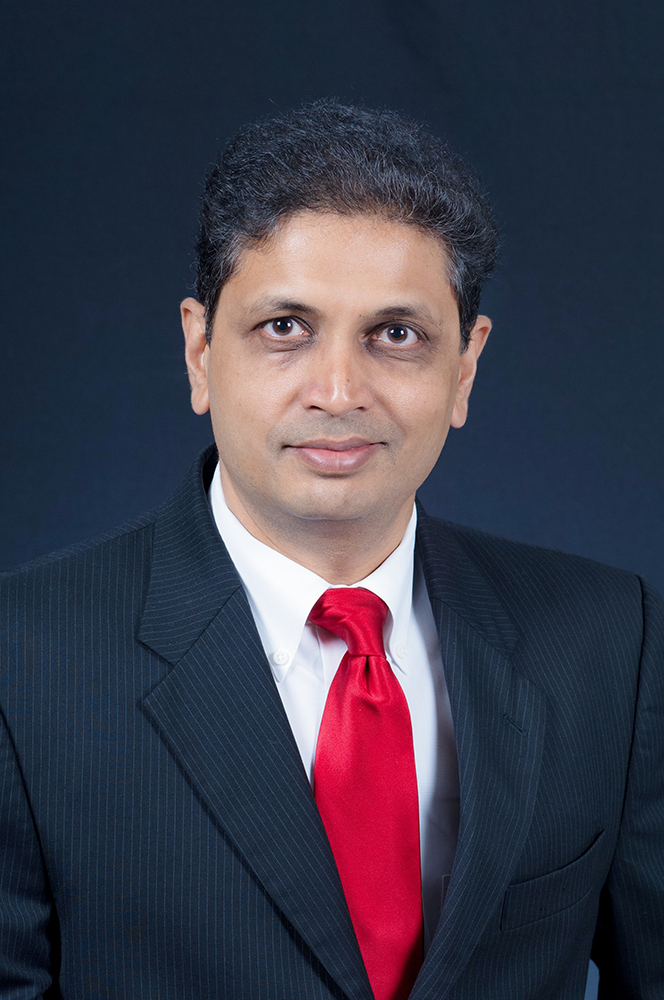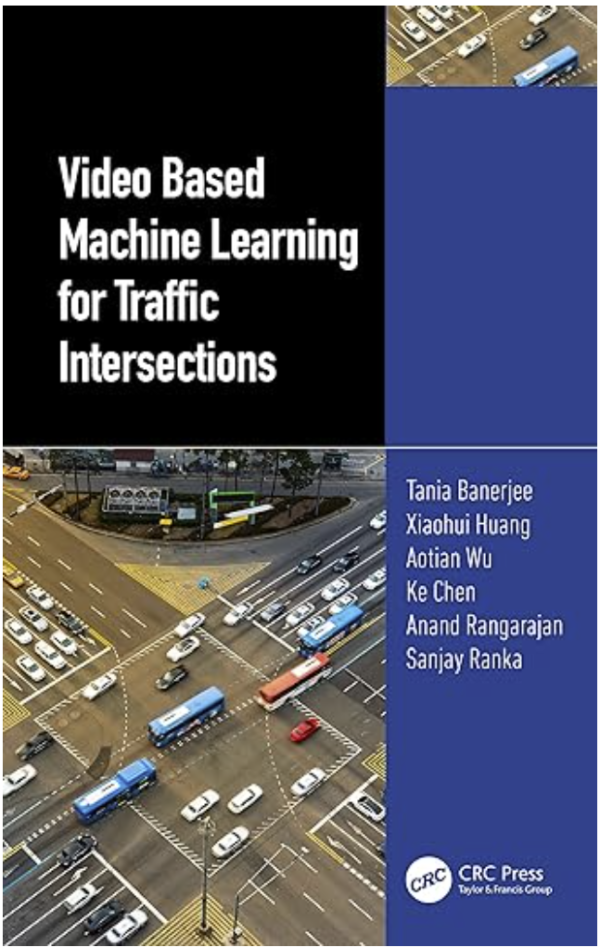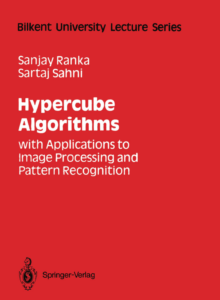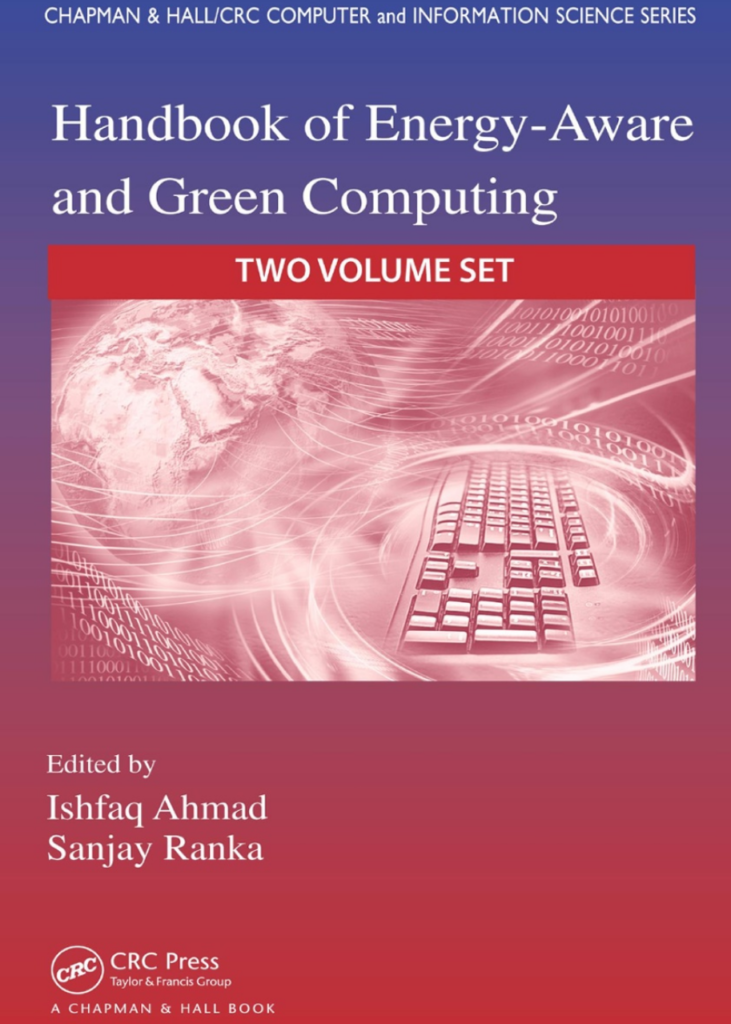
Sanjay Ranka is a Distinguished Professor in the Department of Computer Information Science and Engineering at University of Florida. His current research is on developing algorithms and software using Machine Learning, Internet of Things, GPU Computing and Cloud Computing for solving applications in Transportation and Health Care. He is a fellow of the IEEE, AAAS, AIAA (Asia-Pacific Artificial Intelligence Association) and AIIA (International Artificial Intelligence Alliance, Industry Academy) and a past member of IFIP Committee on System Modeling and Optimization. He is also a board member of American Society for Artificial Intelligence. He was awarded the 2020 Research Impact Award from IEEE Technical Committee on Cloud Computing. He was also awarded the 2022 Distinguished Alumnus Award from Indian Institute of Technology, Kanpur. His research is currently funded by NIH, NSF, USDOT, DOE and FDOT.
From 1999-2002, as the Chief Technology Officer and co-founder of Paramark (Sunnyvale, CA), he conceptualized and developed a machine learning based real-time optimization service called PILOT for optimizing marketing and advertising campaigns. Paramark was recognized by VentureWire/Technologic Partners as a Top 100 Internet technology company in 2001 and 2002 and was acquired in 2002.
RESEARCH AREAS
BOOKS
RECENT FUNDING
- Principal Investigator, Interstate 4 Florida’s Regional Advanced Mobility Elements: Before and After, (2023-2028), $201,000.
- Principal Investigator, Research on Artificial-Intelligence for Data Integration with State Highways, Florida Department of Transportation (2022-2024), $300,000.Principal Investigator, Hybrid learning techniques for scientific data reduction with performance guarantees, DOE (2021-2024), $900,000.
- Principal Investigator, Near-Miss Traffic Incident Identification System at Signalized Intersections, Broward County (2023-2024), approx., $415,000
- Principal Investigator, Using Trajectory Data and Ground Sensor Data for Traffic Signal Policy Optimization, Florida Department of Transportation (2022-2025), $400,000.
- Principal Investigator, RAPIDS2: A SciDAC Institute for Computer Science, Data and Artificial Intelligence, DOE (2020-2025), $550,000.
- Principal Investigator, Video-Based Machine Learning for Smart Traffic Analysis and Management, National Science Foundation Smart Cities and Communities, (2019-2023), approx. $2 million.
- Principal Investigator, Bigdata Analytics and Artificial Intelligence for Smart Intersections, Florida Department of Transportation (2019-2022), $750,000.
- Principal Investigator, Wearable Technology Infrastructure to Enhance Capacity for Real-Time, Online Assessment and Mobility (ROAMM) of Intervening Health Events in Older Adults, National Institute of Aging, 2019-2024, approx. $2.6 Million (Todd Manini is the other PI).
- Principal Investigator, Machine Learning Algorithms for Improved Network Traffic Signal Policy Optimization, FDOT, (2019-2021), approx. $328K.
- Principal Investigator, EAGER: Software-Hardware Co-Design Approaches for Multi-Level Memories, National Science Foundation (2017-2020), $300,000.
- Principal Investigator, Machine Learning Algorithms for Demand and Turning Movement Count, FDOT, 2018-2021, approx. $200,000.
- Principal Investigator, Data Management and Analytics for UF Smart Testbed, FDOT, (2017-2020), approx. $540,000.
ANNOUNCEMENTS
I will be presenting at the following conferences:
- Keynote Speaker, AI for Intelligent Transportation, The International Association of Transportation Regulators (IATR) 37th Annual Conference, Fort Lauderdale, October 2024.
- Keynote Speaker, Machine Learning for Intelligent Transportation, 2024 International Conference on Smart Transportation and Future Mobility, Shanghai, October 2024.
- Keynote Speaker, Machine Learning for Scientific Data Reduction, IEEE ISCC, Paris, June 2024.
- Keynote Speaker, Machine Learning for Smart Transportation, International Conference on Civil Engineering Fundamentals and Applications (ICCEFA’23), Lisbon, December 2023.
A summary of work on our NSF project on Video based machine learning for traffic intersections appears here.
Recent Publications (Congrats to all the students involved).
1. X. Li, Q. Gong, J. Lee, S. Klasky, A. Rangarajan, and S. Ranka, Hybrid Approaches for Data Reduction of Spatiotemporal Scientific Applications. Proceedings of DCC 2024, to appear.
2. J. Lee, A. Rangarajan, and S. Ranka, Guaranteeing Error Bounds with Preservation of Derived Quantities in Compressive Autoencoders. Proceedings of DCC 2024, to appear.
3. J. Lee, A. Rangarajan, and S. Ranka, Nonlinear-by-Linear: Guaranteeing Error Bounds in Compressive Autoencoders, Proceedings of 2023 International Conference on Contemporary computing, 2023, pp. 552-561.
4. J. Lee, A. Rangarajan, and S. Ranka, Nonlinear constraint satisfaction for compressive autoencoders using instance-specific linear operators. IC3 2023: 562-571.
5. T. Banerjee, J. Lee, J. Choi, Q. Gong, J. Chen, CS. Chang, S. Klasky, A. Rangarajan, and S. Ranka: Online and Scalable Data Compression Pipeline with Guarantees on Quantities of Interest. Proceedings of e-Science 2023, pp. 1-10.
6. R. Sengupta, T. Banerjee, Y. Karnati, S. Ranka, A. Rangarajan: Using DSRC Road-Side Unit Data to Derive Braking Behavior. Proceedings of VEHITS 2023, pp. 420-427.
7. Q. Gong, C. Zhang, X. Liang, V. Reshniak, J. Chen, A. Rangarajan, S. Ranka, N. Vidal, L. Wan, P. Ullrich, N. Podhorszki, R. Jacob, S. Klasky, Spatiotemporally Adaptive Compression for Scientific Dataset with Feature Preservation – A Case Study on Simulation Data with Extreme Climate Events Analysis. Proceedings of 2023 e-Science, 2023: pp. 1-10.
8. X. Li, P. He, A. Wu, S. Ranka, A. Rangarajan, A Spatiotemporal Correspondence Approach to Unsupervised LiDAR Segmentation with Traffic Applications. Proceedings of 26th IEEE International Conference on Intelligent Transportation (ITSC), 2023, pp. 1014-1021.
- M. Alpert, B. Sharma, E. Cenko, R. Zapata, Y. Karnati, R.B. Fillingim, T.M. Gill, M. Marsiske, S. Ranka, T. M. Manini. Identifying barriers and facilitators for using a smartwatch to monitor health among older adults, Educational Gerontology, 2024, 50:4, 282-295.
- Gong, J. Chen, B. Whitney, X. Liang, V. Reshniak, T. Banerjee, J. Lee, A. Rangarajan, L. Wan, N. Vidal, Q. Liu, A. Gainaru, N. Podhorszki, R. Archibald, S. Ranka and S. Klasky. MGARD: A multigrid framework for high-performance, error-controlled data compression and refactoring. SoftwareX 24: 101590 (2023).
- He, P. Emami, S. Ranka and A. Rangarajan, “Learning Canonical Embeddings for Unsupervised Shape Correspondence With Locally Linear Transformations,” in IEEE Transactions on Pattern Analysis and Machine Intelligence, vol. 45, no. 12, pp. 14872-14887, Dec. 2023.
- Smail, J. Alpert, M. Mardini, C. Kaufmann, C. Bai, T. Gill, R. Fillingim, E. Cenko, R. Zapata, Y. Karnati, M. Marsiske, S. Ranka, T. Manini, Feasibility of A Smartwatch Platform to Assess Ecological Mobility: Real-time Online Assessment and Mobility Monitor (ROAMM). The Journals of Gerontology: Series A, Volume 78, Issue 5, May 2023, Pages 821–830.
- Sengupta et al., “Computing Arterial Travel Time Distributions From Loop Detector and Probe Datasets,” in IEEE Transactions on Intelligent Transportation Systems, vol. 24, no. 11, pp. 11607-11622, Nov. 2023.
- He, P. Emami, S. Ranka, A. Rangarajan, Learning Scene Dynamics from Point Cloud Sequences. International Journal of Computer Vision, 130(3), pp. 669-695 (2022).
- Lee, Q. Gong, J. Choi, T. Banerjee S. Klasky S. Ranka, A. Rangarajan, Error-Bounded Learned Scientific Data Compression with Preservation of Derived Quantities. Applied Sciences. 2022; 12(13):6718.
- Mishra, K. Chen, S. Poddar, E. Posadas, A. Rangarajan, S. Ranka, “Using Video Analytics to Improve Traffic Intersection Safety and Performance,” VehiclesJournal, 2022, Vol. 4, 1288-1313.
- He, A. Wu, X. Huang, A. Rangarajan, and S. Ranka, Machine Learning-based Highway Truck Commodity Classification Using Logo Data, in Applied Sciences, 2022, 12, 2075.
- Huang, P. He, A. Rangarajan, and S. Ranka, Machine Learning based Real-time Multi-Camera Vehicle Tracking and Travel Time Estimation, in Journal of Imaging. 2022; 8(4):101.
- Li, Q. Gong, J. Lee, S. Klasky, A. Rangarajan, and S. Ranka, Hybrid Approaches for Data Reduction of Spatiotemporal Scientific Applications. Proceedings of DCC 2024, to appear.
- Lee, A. Rangarajan, and S. Ranka, Guaranteeing Error Bounds with Preservation of Derived Quantities in Compressive Autoencoders. Proceedings of DCC 2024, to appear.
- Lee, A. Rangarajan, and S. Ranka, Nonlinear-by-Linear: Guaranteeing Error Bounds in Compressive Autoencoders, Proceedings of 2023 International Conference on Contemporary computing, 2023, pp. 552-561.
- Lee, A. Rangarajan, and S. Ranka, Nonlinear constraint satisfaction for compressive autoencoders using instance-specific linear operators. IC3 2023: 562-571.
- Banerjee, J. Lee, J. Choi, Q. Gong, J. Chen, CS. Chang, S. Klasky, A. Rangarajan, and S. Ranka: Online and Scalable Data Compression Pipeline with Guarantees on Quantities of Interest. Proceedings of e-Science 2023, pp. 1-10.
- Sengupta, T. Banerjee, Y. Karnati, S. Ranka, A. Rangarajan:
Using DSRC Road-Side Unit Data to Derive Braking Behavior. Proceedings of VEHITS 2023, pp. 420-427. - Gong, C. Zhang, X. Liang, V. Reshniak, J. Chen, A. Rangarajan, S. Ranka, N. Vidal, L. Wan, P. Ullrich, N. Podhorszki, R. Jacob, S. Klasky,Spatiotemporally Adaptive Compression for Scientific Dataset with Feature Preservation – A Case Study on Simulation Data with Extreme Climate Events Analysis. Proceedings of 2023 e-Science, 2023: pp. 1-10.
- Li, P. He, A. Wu, S. Ranka, A. Rangarajan, A Spatiotemporal Correspondence Approach to Unsupervised LiDAR Segmentation with Traffic Applications. Proceedings of 26th IEEE International Conference on Intelligent Transportation (ITSC), 2023, pp. 1014-1021.
- Wu, T. Banerjee, K. Chen, A. Rangarajan, S. Ranka, A Multi-Sensor Video/LiDAR System for Analyzing Intersection Safety. Proceedings of 26th IEEE International Conference on Intelligent Transportation (ITSC), 2023, pp. 1158-1165.
- Sengupta, T. Banerjee, Y. Karnati, K. Chen, S. Ranka, A. Rangarajan: Towards Effective Traffic Signal Safety and Optimization Using Fisheye Video Proceedings of VEHITS 2023, pp. 54-63.
- Keynote Speaker, AI for Intelligent Transportation, The International Association of Transportation Regulators (IATR) 37th Annual Conference, Fort Lauderdale, October 2024.
- Keynote Speaker, Machine Learning for Intelligent Transportation, 2024 International Conference on Smart Transportation and Future Mobility, Shanghai, October 2024.
- Keynote Speaker, Machine Learning for Scientific Data Reduction, IEEE ISCC, Paris, June 2024.
- Keynote Speaker, Machine Learning for Smart Transportation, International Conference on Civil Engineering Fundamentals and Applications (ICCEFA’23) , Lisbon, Dec. 2023.
- Keynote Speaker, Leveraging AI for Transportation, 2023 7th International Symposium on Computer Science and Intelligent Control, ISCSIC 2023 ISCSIC 2023, Oct. 2023.
- Keynote Speaker, Volumetric scientific data reduction with performance guarantees, International Conference on Contemporary Computing (IC3-2023), August 2023.
- Keynote Speaker, Machine Learning for Smart Transportation, Advances in Information Communication Technology & Computing, Bikaner, India, Dec. 2022.
- Keynote Speaker, Machine Learning for Smart Transportation, International Conference on Machine Learning, and Intelligent Systems (MLIS2022), Seoul, Republic of Korea, Nov. 2022.
- Keynote Speaker, Artificial Intelligence and Machine Learning for Smart Transportation, INFRAMEET 2022, Chicago, Nov. 2022.
- Keynote Speaker, Edge Based AI for Smart Transportation, International Conference on Computing Innovation and Applied Physics, Aug. 2022.
- Invited Speaker, A Multi-Sensor Edge Based System for Intelligent Traffic Intersections, IEEE MetroCAD, Detroit, Apr. 2022.
- Keynote Speaker, Edge Based Artificial Intelligence for Smart Transporation, International Conference on Informatics (ICI-2022), New Delhi, Apr. 2022.
- Plenary Speaker, Power and Performance tradeoffs for Exascale Computing, Global Summit on Power and Energy Engineering (GSPEE2022), Dubai, Mar. 2021.
- United States Patent Number 8,805,715. Brian Jones and Sanjay Ranka. Method for Improving the Performance of Messages Including Internet Splash Pages. Aug. 12, 2014.
- United States Patent Number 8,386,315. Arvind Bala, Richard Chatwin, Brian Jones, Ahmet Nalcacioglu, and Sanjay Ranka. Yield Management System and Method for Advertising Inventory, Feb. 26, 2013.
- United States Patent Number 8,260,663. Sanjay Ranka, Diane Chang, and Daniel Veiner. Method, Algorithm, and Computer Program for Targeting Messages Including Advertisements in an Interactive Measurable Medium, Sept. 4, 2012.
- United States Patent Number 8,144,686. Sartaj Sahni, Nageshwar Sirikonda Venkata, Sanjay Ranka, Yan Li, Eun-sung Jung, and Narayana Kamath. Method and Systems for Bandwidth Scheduling and Path Computation for Connection-Oriented Networks, Mar. 27, 2012.
- United States Patent Number 7,573,978. Srijit Kamath, Sartaj Sahni, Jonathan Li, Jatinder Palta, and Sanjay Ranka. Variable Feathering Field Splitting for Intensity Modulated Fields of Large Size, Aug. 11, 2009.
- United States Patent Number 7,415,423. Sanjay Ranka, Jason Lenderman, and James Weisinger. Method, Algorithm, and Computer Program for Optimizing the Performance of Messages Including Advertisements in an Interactive Measurable Medium, Aug. 19, 2008.
- United States Patent Number 7,406,434. Diane Chang, Richard Chatwin, Sachin Kumar, Sanjay Ranka, James Weisinger, and Jason Lenderman. System and Method for Improving the Performance of Electronic Media Advertising Campaigns through Multi-attribute Analysis and Optimization, July 29, 2008.
- United States Patent Number 7,142,635. Srijit Kamath, Sartaj Sahni, Jonathan Li, Jatinder Palta, and Sanjay Ranka. Field Splitting for Intensity Modulated Fields of Large Size, 28, 2006.
- United States Patent Number 7,085,348. Srijit Kamath, Sartaj Sahni, Jonathan Li, Jatinder Palta, and Sanjay Ranka. Leaf Sequencing Method and System, Aug. 1, 2006.
- United States patent number 6,563,952. Anurag Srivastava, G. D. Ramkumar, Vineet Singh, and Sanjay Ranka. Method of High Dimensional Data and Apparatus for Classification, May 13, 2003.
- United States Patent Number 6,173,280. G. D. Ramkumar, Sanjay Ranka, and Shalom Tsur. Method and Apparatus for Generating Weighted Association Rules, Jan. 9, 2001.
- United States Patent Number 5,987,468. Vineet Singh, Khaled Alsabti, and Sanjay Ranka. Structure and Method for Efficient Parallel High-Dimensional Similarity Join, Nov. 16, 1999.
- United States Patent Number 5,983,224. Vineet Singh, Sanjay Ranka, and Khaled Alsabti. Method and Apparatus for Reducing the Computational Requirements of K-Means Data Clustering, Nov. 9, 1999.







